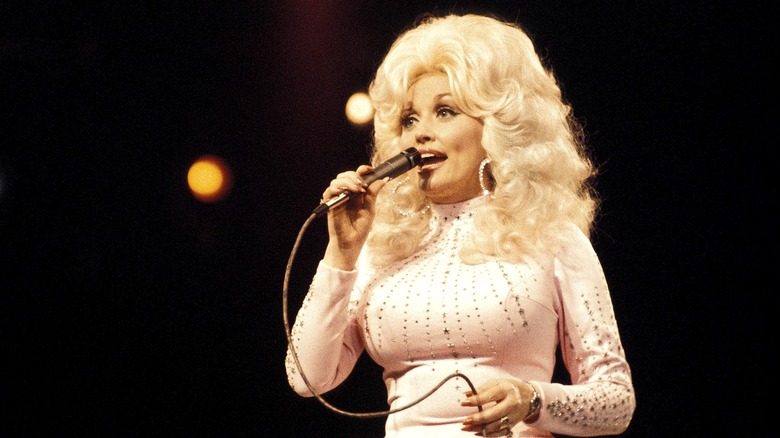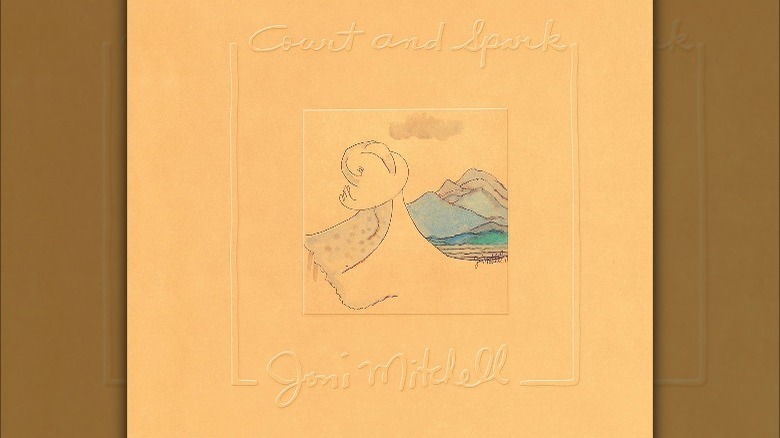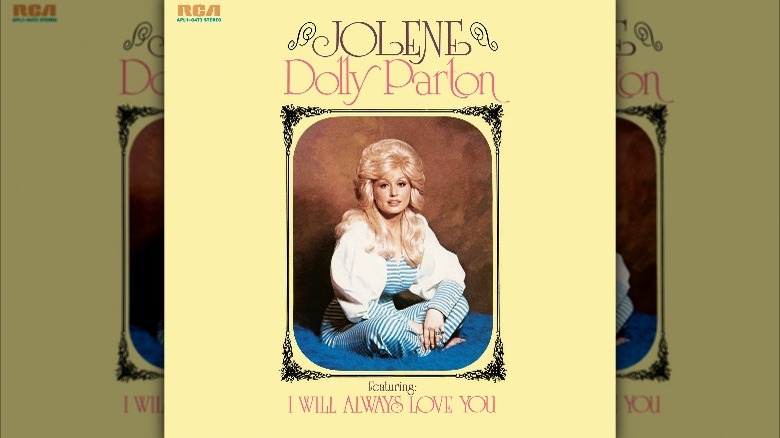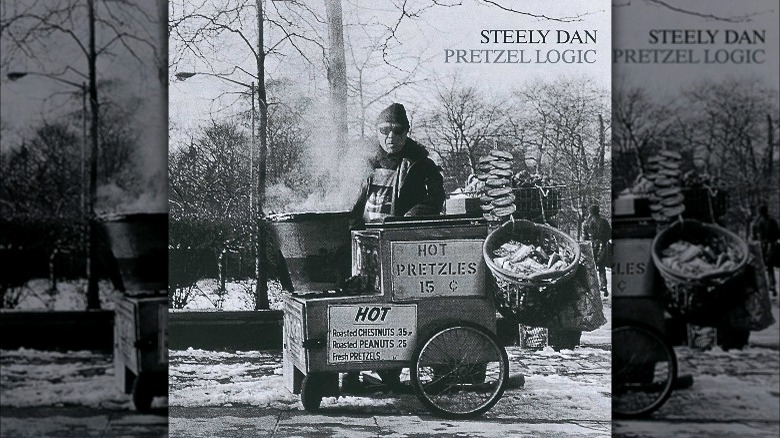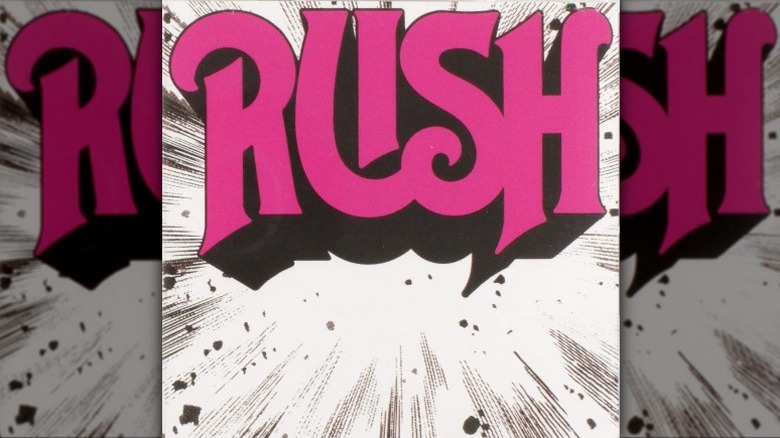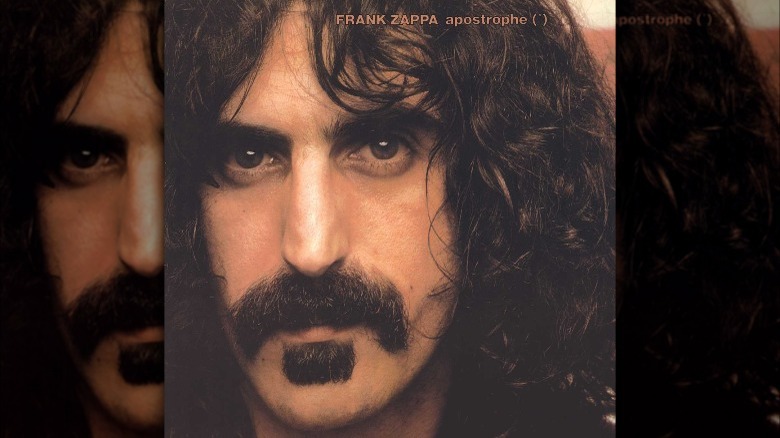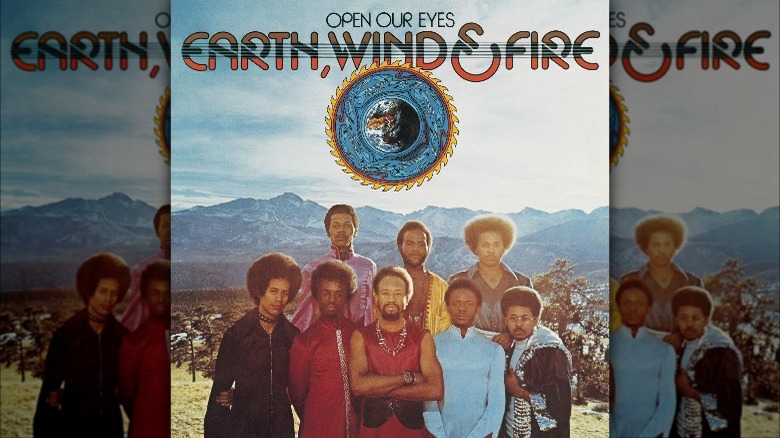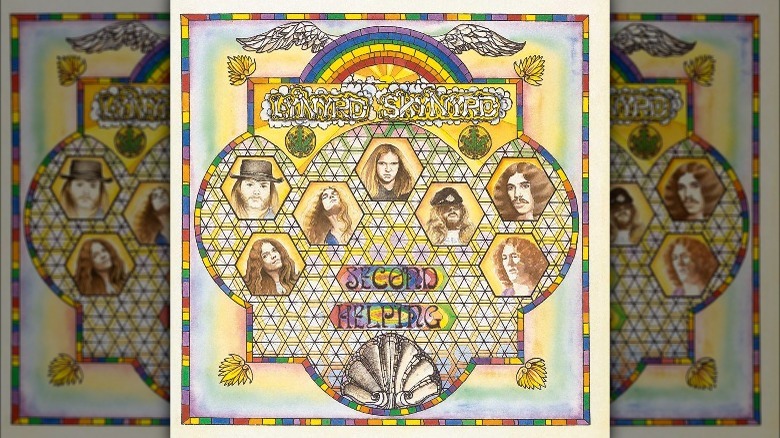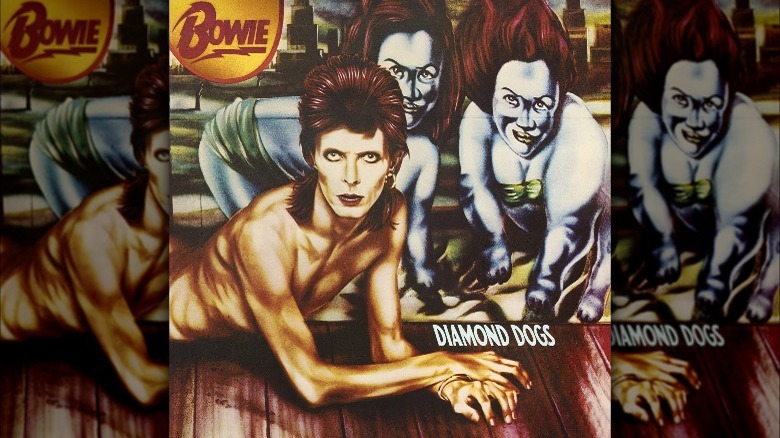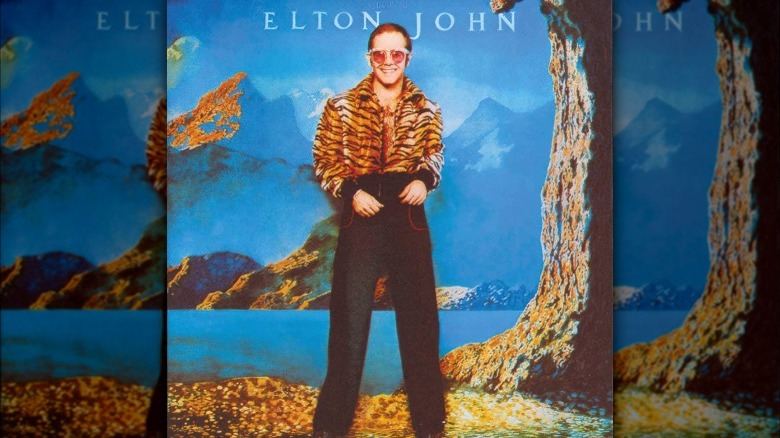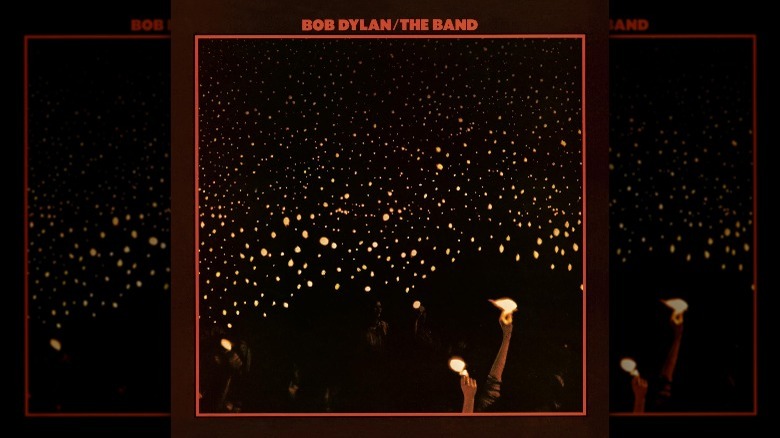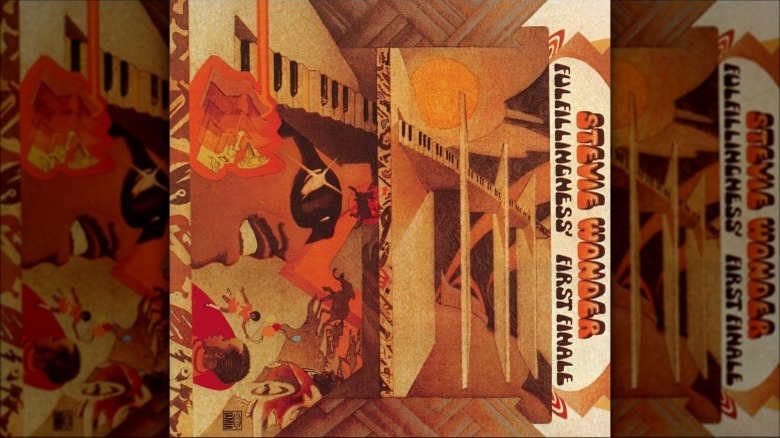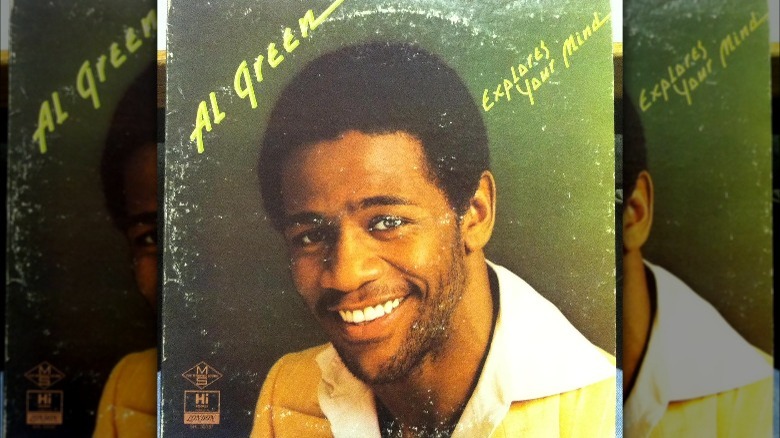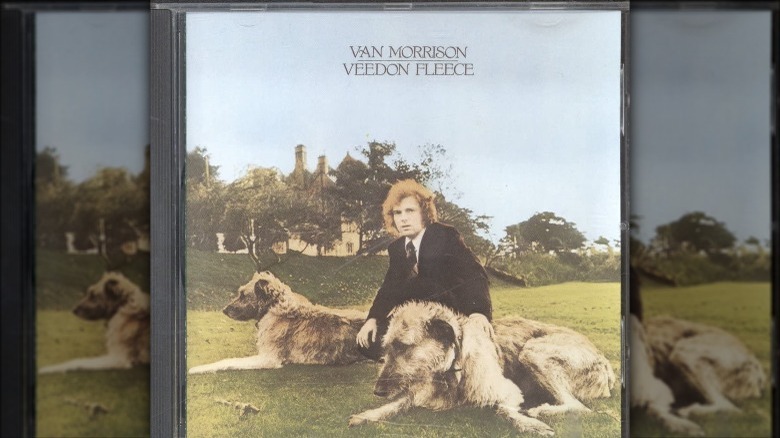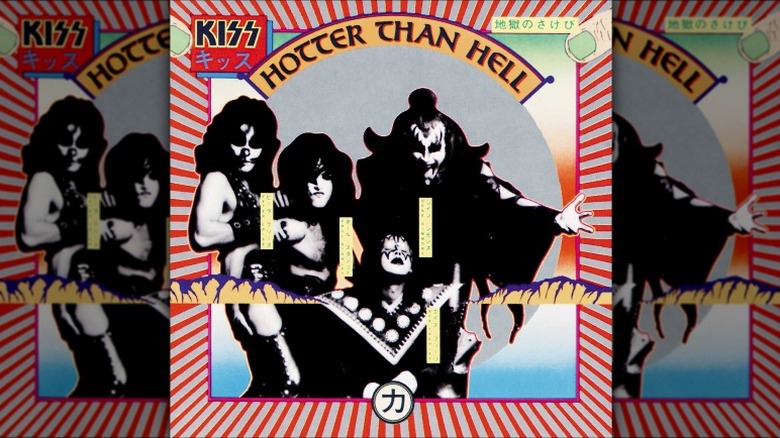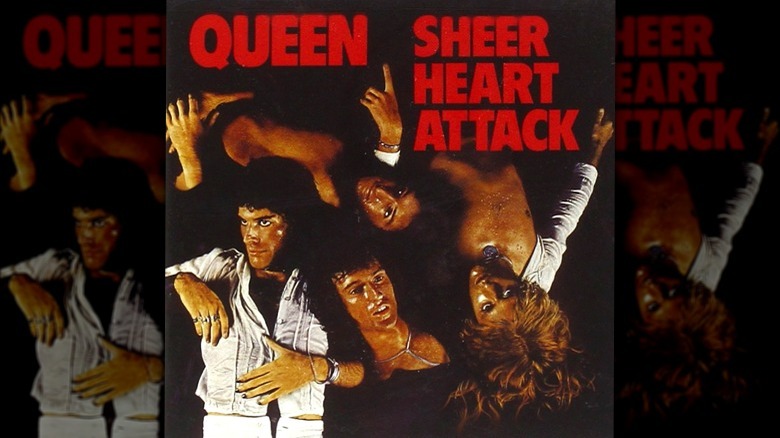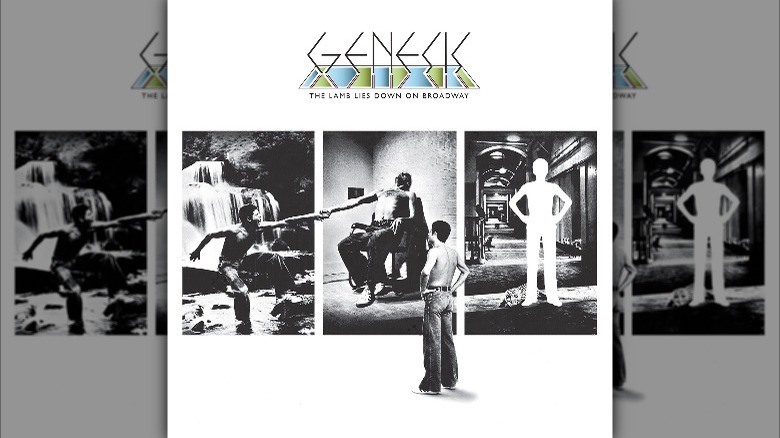Classic Albums Turning 50 In 2024
We may receive a commission on purchases made from links.
Perhaps no art form goes through so many stylistic changes and trends as popular music. Its history now stretches back almost a century, soundtracking recent memory in a way that earlier generations couldn't possibly imagine. At its core, popular music is about novelty; about surprising listeners in the hope of creating viral moments that climb the charts before promptly being forgotten and replaced by the next flavor of the month. That was certainly the theory in the early days of the music industry, anyway, with labels becoming ruthless in their willingness to drop artists when musical styles changed and musicians failed to keep up. Pop music, it seems, is naturally forward-looking.
However, since albums became the dominant form of releasing music in the 1960s, listeners have increasingly started to look backward. "Best of" compilations fill the charts and remain there for years, while remastered, remixed, and reimagined classic albums now constitute a big part of the business models of most major record labels. The definition of a classic within music, however, is notoriously slippy — just because something sold well doesn't make it a classic, and an album that may have been neglected upon its release may very well develop a cult following down the road.
At its core, a "classic" is any album that proves timeless over the years, and indeed, any record that can still bend the ear five decades after its original release deserves special praise. Here are 16 classic albums released half a century ago that continue to find an audience today.
Joni Mitchell - Court and Spark (January 17, 1974)
Folk legend Joni Mitchell is one of those artists revered for rarely putting a foot wrong, and as a result, she has a stellar discography behind her featuring such albums as "Blue" (1971) and "For the Roses" (1972). The mystique around these albums, both over 50 years old, has only grown as the years have passed, with new generations of listeners continuing to explore Mitchell's work and discover her as the master folk artist she is.
Her follow-up to "Blue" and "For the Roses" came in 1974. That year, Mitchell made a major contribution to her oeuvre in the form of "Court and Spark," a progressive album that pushed her beyond her folk roots both thematically and musically. Opening the album is the stark title track, "Court and Spark," a ballad about feelings of ambivalence when it comes to pursuing love. The themes of love, passing relationships, and freedom remain present for the album's duration, while Mitchell opens up her musical palette to create catchy hits with numerous jazz flourishes provided by a newly assembled team of supporting musicians.
The album was a striking success, hitting No. 2 on the Billboard chart and going double platinum. It remains a fan favorite, with "Free Man in Paris" considered one of Mitchell's greatest songs. But despite its classic status, Mitchell's masterpiece remains off the world's largest streaming platform, Spotify. In 2022, Mitchell withdrew her material from the platform in solidarity with Neil Young, who opposed the addition of "The Joe Rogan Experience" as an exclusive podcast.
Dolly Parton - Jolene (February 4, 1974)
Dolly Parton has established herself as a national treasure in the decades since her career as a country singer was at its peak in the 1970s, so much so that it's tempting to say her immense celebrity has overshadowed her music in the 21st century. But to those who do know, Parton's talent for songwriting has never been in doubt, as demonstrated by her 1974 album "Jolene," the album that contains her two biggest songs: "Jolene" and "I Will Always Love You."
The title track, an uptempo number in which the narrator begs the title character to "please don't take my man," was actually only a middling hit at the time of its release but has since become one of Parton's signatures, despite its now rather outdated view of gender dynamics. Amazingly, it garnered Parton two Grammy nominations for Best Country Vocal Performance in separate years: 1975 and 1976. This said, the album's other hit, the soaring ballad "I Will Always Love You," is the song that perhaps impacted Parton's fortunes even more, though it took some years for it to happen.
Some 18 years after its release, "I Will Always Love You" became a new worldwide smash — and one of the bestselling singles of all time — when Whitney Houston covered it for "The Bodyguard" soundtrack in 1992. For her version, Houston won the Grammy for Best Pop Vocal Performance in 1994. Impressively, Parton claims that "Jolene" and "I Will Always Love You" were written on the same day, proving lightning can strike twice.
Steely Dan - Pretzel Logic (February 20, 1974)
Eventually, Donald Fagan and Walter Becker, aka Steely Dan, gained a sizeable following for their immaculate brand of jazz-rock fusion. While their first record, "Can't Buy A Thrill," was a huge hit with audiences and critics alike, buoyed by the success of its lead single, "Do It Again," it wasn't always easy for Steely Dan. They'd spent years trying to break into the music industry, and after their sophomore effort, 1973's "Countdown to Ecstacy," spluttered on the charts, their position looked shaky once more.
But 1974's "Pretzel Logic" proved the Fagan and Becker partnership was one for the ages. The duo's knack for writing killer hooks was exhibited on the album's lead single, "Rikki, Don't Lose That Number," which proved a solid radio hit in the U.S. and helped push "Pretzel Logic" into the top 10 of the Billboard 200. And though "Pretzel Logic" failed to chart in the United Kingdom, the album nonetheless represented Steely Dan's breakthrough into the British market, where they retained a loyal following thereafter.
Rush - Rush (March 1, 1974)
Few albums that earn the title of "classic" sell as few copies as "Rush" did on its first pressing. The now-much-loved Canadian rock outfit Rush was just another unknown rock group in 1974, a "bar band from the city" of Toronto, as guitarist Alex Lifeson put it in Martin Popoff's "Contents Under Pressure: 30 Years of Rush at Home and Away."
Having formed while its members were still in high school in 1968, Rush had built a following in their home city. But while they were a popular live act whose brand of Led Zeppelin-inspired hard rock certainly connected with Canadian audiences, no record labels were interested in signing them to a recording contract. In response, the band set up their own label, Moon Records, and recorded and released their debut album on a shoestring.
According to Popoff, "Rush" is an oddity in Rush's discography, which is more readily distinguished by ambitious progressive rock in the vein of such bands as Jethro Tull. However, such tracks as the album's closer, "Working Man," long remained fixtures of Rush's live shows even after they changed their sonic direction. The song was also the album cut to receive the most radio play. Its success led to the band re-releasing the album on the American label Mercury Records, which thereafter signed them to a lucrative contract that took them to the big time.
Frank Zappa - Apostrophe (') (March 22, 1974)
As the band leader of the experimental art-rock band Mothers of Invention, Frank Zappa had been freaking out listeners since the mid-'60s. But while he was well-respected among critics and fans alike for his incredible guitar abilities, talents as an arranger, and unique sense of mischievous humor, he had yet to make a true commercial smash that could propel him into the mainstream.
That finally happened in 1974 with the release of "Apostrophe (')," a slender 30-minute record that nevertheless showcased everything Zappa had to offer. The record opens with a suite of four songs comprising "Don't Eat the Yellow Snow," a story about an Eskimo with an outro of "Watch out where the huskies go / And don't you eat that yellow snow." Despite — or perhaps because of — its infantile gags, the album managed to crack the top 10 of the Billboard 200 and was eventually certified gold.
"Apostrophe (')" was also commended for its satire, with social themes becoming more prominent toward the end of the album. In particular, the song "Uncle Remus," which is concerned with the slowing down of the Civil Rights movement in the 1970s, shows Zappa at his most socially aware. Though at the time Zappa was criticized by some fans for selling out, "Apostrophe (')" has endured as one of his classics.
Earth, Wind & Fire - Open Our Eyes (March 25, 1974)
Earth, Wind & Fire were in their ascendency throughout the early 1970s, peaking with two No. 1 albums in 1975: "That's the Way of the World" and "Gratitude." Today, their sound is instantly recognizable, but back then, their musical identity was still being built through releases such as 1974's "Open Our Eyes," a flawless album that featured three Hot 100-charting singles. The sound on hits such as "Mighty Mighty" and "Kalimba Story" showed that Earth, Wind & Fire were a truly visionary group willing to explore on-trend funk and fuse it with their previous soul and R&B influences to create something truly timeless.
"Open Our Eyes" was critically acclaimed, with fans typically counting it among the group's very best work. Music journalist and essayist Robert Christgau, who was somewhat critical of some previous Earth, Wind & Fire albums for their tendency for self-indulgence during the second half, was enamored with "Open Our Eyes," calling it a "f****** tour de force." Though not as successful on the charts as their back-to-back No. 1 albums that were released the following year — it stalled at a respectable No. 15 — "Open Our Eyes" has nevertheless remained a touchstone for fans. It was Earth, Wind & Fire's first record to go gold, and was eventually certified platinum by the RIAA in 1986.
Lynyrd Skynyrd - Second Helping (April 15, 1974)
The Southern rockers Lynyrd Skynyrd's sophomore album "Second Helping" cemented the unpretentious sound they had introduced on their debut, 1973's "(Pronounced 'Lĕh-'nérd 'Skin-'nérd)." Both albums were produced by former Bob Dylan musician Al Kooper, with a slightly more polished job on "Second Helping," which meant many of that album's songs have remained radio-friendly despite the passage of time. Tracks such as "Workin' for MCA" show off Lynyrd Skynyrd's hard-rocking credentials, while others like "The Needle and Spoon" reveal their affecting, socially aware side. But, of course, the track that stands out is the opener, "Sweet Home Alabama," which broke into the top 10 on the singles chart and has remained an anthem for the band's home state.
As the lyrics make clear, "Sweet Home Alabama" is a rebuttal of Neil Young's "Southern Man," which principal songwriter Ronnie Van Zant reportedly found an unfair caricature of Southern identity. Young was later to admit that his song was "condescending." Though "Sweet Home Alabama" has drawn some criticism over the years, it remains highly popular.
Only three years later, the band would be torn apart by a plane crash that would leave three members of Lynard Skynard dead, including Van Zant. However, albums like "Second Helping" stand as a testament to the incredible alchemy that the band established in just a few short years.
David Bowie - Diamond Dogs (May 24, 1974)
For many fans, David Bowie was an artist whose whole career was buoyed by a near decade-long imperial phase, beginning with his studio album "Hunky Dory" in 1971 and ending around 1980 with the release of "Scary Monsters." Looking back, the run of albums that Bowie released in the 1970s seems as untouchable as the discography created by the Beatles a decade earlier, a pristine body of work created at a time when the artist in question could do no wrong.
However, such a view comes easily in retrospect, at a time when Bowie is widely considered to be a pop genius; at the time, though, things perhaps looked quite different, particularly when it comes to his 1974 effort "Diamond Dogs." The story behind the album reveals its difficult genesis. Fresh from killing off his iconic Ziggy Stardust character, Bowie was at the time casting around for a new artistic direction. He began to formulate an idea for a musical based on the dystopian novel "Nineteen Eighty-Four" by George Orwell, but was unable to secure the rights from the writer's estate. So Bowie was forced to create a dystopia of his own: an apocalyptic metropolis dominated by dog-man hybrids.
"Diamond Dogs" received a lukewarm response at the time of its release, but as the decades have passed, it has been identified as an important transitional record in Bowie's catalog, a record that demonstrated a knack for transformation that would become Bowie's hallmark. Meanwhile, the hit single "Rebel, Rebel" proved he could continue to deliver hits even as he dug deep conceptually.
Elton John - Caribou (June 24, 1974)
While David Bowie may have struggled for consistency amid his myriad ch-ch-changes of the 1970s, there was another British rocker for whom consistency seemed to come naturally: Elton John. From 1972's "Honky Chateau" to 1975's "Rock of the Westies," the energetic piano man scored an impressive seven consecutive No. 1 albums on the Billboard 200, becoming one of the decade's biggest-selling artists in the process.
One of these was 1974's "Caribou," which, like "Honky Chateau," took its title from a recording studio, the Caribou Ranch in Boulder County, Colorado, which John and his team retreated to in order to create a follow-up to 1973's platinum-selling "Goodbye Yellow Brick Road." Pressure was on John to deliver before he and his band hit the road in February of that year for a tour of Japan, but "Caribou" seems to have come together effortlessly, showcasing (as his best work does) his pitch-perfect partnership with his lyricist Bernie Taupin.
The album's lead single, "Don't Let The Sun Go Down On Me," features vocals from the Beach Boys' Carl Wilson and Bruce Johnston, as well as Toni Tennille. It was a big hit and thereafter remained a regular fixture of John's live shows, along with its follow-up, "The B**** is Back." When the album again hit the top spot, John signed the most lucrative contract in pop history with MCA Records.
Bob Dylan & The Band - Before the Flood (June 20, 1974)
By the mid-1970s, Bob Dylan found himself a former critical darling with a tarnished reputation. His 1970 double album, "Self Portrait," had divided both critics and his fanbase, who still held a special place in their hearts for his earlier classics, like "Blowin' In The Wind" and "Like a Rolling Stone." Looking to reconnect with his audience while maintaining his ever-important creative freedom, Dylan reached out to longtime collaborators The Band, who were also having creative issues in the early 1970s.
The two acts embarked on a much-anticipated live tour, of which 1974's "Before the Flood" is a striking artifact. Comprised mainly of Dylan classics but also boasting a smattering of compositions by The Band, the album is an insight into the future Nobel Laureate's growing penchant for transforming his classic songs and twisting them into new forms. At root, such alterations may be necessary for Dylan to avoid tiring of his own songs. Nevertheless, it makes for an enthralling listen, with many classics, such as the elegant "Lay Lady Lay," performed at a galloping tempo that evokes the excitement of the live event.
The tour was a great success, as was "Before the Flood," both critically and commercially, landing high on the album charts. The double album went a long way toward restoring both artists' reputations. Dylan was once again cast as an artist of singular talent, sparking a war between record labels and laying the groundwork for future classics, including "The Basement Tapes" and "Desire," which would be released to great acclaim in the coming years.
Stevie Wonder - Fulfillingness' First Finale (July 22, 1974)
In 1972, the multitalented Stevie Wonder — who had risen to prominence a decade earlier as a child prodigy — took the decisive step to demote Motown Records to the role of merchandiser and take full creative control of his career. It was a decision that would lead him into the most artistically significant period of his career, one which would see him top the charts with back-to-back Grammy Award-winning albums.
The first of these, 1974's "Fulfillingness' First Finale," which spent a total of 65 weeks on the Billboard 200, demonstrated Wonder's incredible range. It included funk-infused uptempo jams like "Boogie on Reggae Woman," nestled next to reflective ballads on God and spirituality, such as the fan favorite "Heaven is 10 Zillion Light Years Away." And once more, the album confirmed Wonder's skills as a multi-instrumentalist, with the musician playing almost everything on the album.
And on the parts in which Wonder doesn't play, he put the spotlight on guest appearances, such as that of legendary bassist James Jamerson, who performed acoustic bass on "Too Shy to Say." The lead single, "You Haven't Done Nothin'," hit No. 1 and featured backing vocals from members of the Jackson 5. Other artists to feature on "Fulfillingness' First Finale" include Paul Anka and Minnie Ripperton, all giving stellar performances on an album that proved to be Wonder's most seminal work thus far. Its companion piece, 1976's "Songs in the Key of Life," arguably went even further, but it was here that the former wunderkind first flourished into one of the era's true greats.
Al Green - Al Green Explores Your Mind (October 2, 1974)
Another legendary soul act making his claim for greatness in the mid-1970s was Al Green, whose 1972 album "Let's Stay Together" represented an enormous commercial breakthrough for the honey-voiced singer. On that album, Green showed he had a knack for surrounding himself with great supporting talent — his collaboration with co-producer Willie Mitchell is generally accepted as taking Green's songwriting to the next level — and he continued to show his quality in 1974.
"Al Green Explores Your Mind" sees Green delivering some of his sweetest and most emotionally articulate vocal performances, while Mitchell's mastery of the production style known as the "Memphis Sound" gives the singer a distinctive backdrop characterized by stellar instrumentation. The album's lead single, "Sha-La-La (Make Me Happy)," was a top 10 smash and showed that Green remained a hitmaker (though he wouldn't repeat the feat until his duet with the Eurythmics' Annie Lennox, "Put a Little Love in Your Heart," reached No. 9 in 1988). However, "Al Green Explores Your Mind" also includes several fan favorites that weren't released as singles, including "Take Me To The River," which Robert Christgau believes ranks among Green's very best work.
Van Morrison - Veedon Fleece (October 5, 1974)
Van Morrison's solo debut, 1968's "Astral Weeks," confounded his fans at the time of its release, representing a major and somewhat experimental departure from the driving blues-inspired garage rock he had perfected earlier in the 1960s with his band, Them. However, the album did attract critical acclaim and laid the groundwork for a solo career that would see Morrison remain a critical darling even as he cast around restlessly for inspiration in the years that followed.
As noted by AllMusic's Jason Ankeny, "Astral Weeks" in 1968 also marked the start of a period of prolific writing and recording for Van Morrison that would lead to some of the Irish singer-songwriter's greatest critical and commercial highs, such as 1970's "Moondance," which remains among Morrison's most famous and widely played work. This creative period for Morrison (1968 to 1974) would end with the release of "Veedon Fleece" in 1974, an album that at the time was savaged by numerous critics who considered it a misstep.
At the time, Morrison was going through a divorce from the singer Janet Planet, and the result was "Veedon Fleece," a suite of songs that balances bitter experience with redemptive regret. The album songs alternate between the sublimely delicate, like "Come Here My Love," to the epic, such as "You Don't Pull No Punches, But You Don't Push the River." And while "Veedon Fleece" was a comparative commercial flop, its songs have remained well-loved among Morrison's fanbase, while the album as a whole has reportedly found an audience among some of the greatest songwriters of recent decades, including Leonard Cohen, Sinead O'Connor, and Jeff Buckley (via Vinyl Me, Please).
Kiss - Hotter Than Hell (October 22, 1974)
Gene Simmons' New York-based shock-rockers Kiss have been a musical institution for so long now, that it's difficult to imagine that at one point the band was struggling. Their self-titled debut album, released in February 1974, was a commercial disappointment, a record that failed to capture the energy and dynamism of the budding band known for their rollicking live performances. By the time it came to record another album that summer, it looked like Kiss was already at risk of running out of steam, with their record label, Casablanca Records, facing an existential cashflow crisis.
Worryingly, October's "Hotter Than Hell" didn't prove to be the immediate escape route that the band and label were looking for, but in the long run, it became one of the most important albums of Kiss' career. Though it initially achieved a lower chart spot than their debut, the songs on "Hotter Than Hell," such as the live favorite "Got to Choose" and "Parasite," would go on to form the material of the 1975 live album "Alive!" which has been pinpointed as the moment Kiss achieved their commercial breakthrough and assured their longevity. "Hotter Than Hell," therefore, remains a fan favorite to this day, a classic that set the template for Kiss albums to follow.
Queen - Sheer Heart Attack (November 8, 1974)
To most casual rock listeners today, Queen aren't particularly remembered as a band that delivered classic albums — instead, they're known for their discography of instantly recognizable hit singles, like "We Are The Champions," "Another One Bites The Dust" "We Will Rock You," and, of course, "Bohemian Rhapsody."
However, all that was to come later: In 1974, the British rockers had yet to assert themselves to listeners on either side of the Atlantic, and the band was furiously working toward establishing a sound that would remain uniquely their own. That year, they released two studio albums. The first, "Queen II," saw the band exploring fantastical lyrical themes on tracks like "Ogre Battle" and "Nevermore," while avoiding progressive bucolic diversions in favor of building solid hard rock foundations.
But it was the band's third album, "Sheer Heart Attack," which saw them take things to the next level. Released just a few months after "Queen II," their second record of 1974 included tracks like the huge hit "Killer Queen," their biggest-selling single to that point, which charted high in both the U.S. and the UK. "Killer Queen" deployed the high-camp tone that would become the Queen's hallmark. Though the band seems to amp up their heaviness on cuts like "Stone Cold Crazy," it's also evident that by this point Freddie Mercury and Brian May had developed into stellar hook-writers, making the album catchier than anything they had released previously.
Genesis - The Lamb Lies Down on Broadway (November 18, 1974)
The early 1970s was also the peak era for progressive rock, the genre of virtuosic, exploratory music that would find itself side-lined by the slate-cleaning punk explosion of the latter part of the decade. Much of what was popular to the prog fans of the period has since been written off by critics, who today often find the genre bloated and self-indulgent. However, there are some albums definitely worth saving, and Genesis' "The Lamb Lies Down on Broadway" from 1974 is one of them.
Though the record-buying public had been used to the idea of concept albums since the release of the Beatles' "Sgt. Pepper's Lonely Hearts Club Band" in 1967, few could have encountered records with such a sense of thematic unity as this Genesis masterpiece. "The Lamb Lies Down on Broadway" is a rock opera spanning two LPs, telling the story of a hustler called Rael who arrives in New York City, a narrative constructed by the band's theatrical frontman at the time, Peter Gabriel.
Amid bombastic, inventive, and downright weird instrumentation, Gabriel's tale unfolds in fragments, through episodic songs with titles like "Here Comes The Supernatural Anaesthetist." But even on repeat listening the events, in question remain shrouded in mystery, so much so that The New Yorker describes the album as "The 'Ulysses' of Concept Albums," and it remains one of the most hotly debated masterpieces of the genre.
